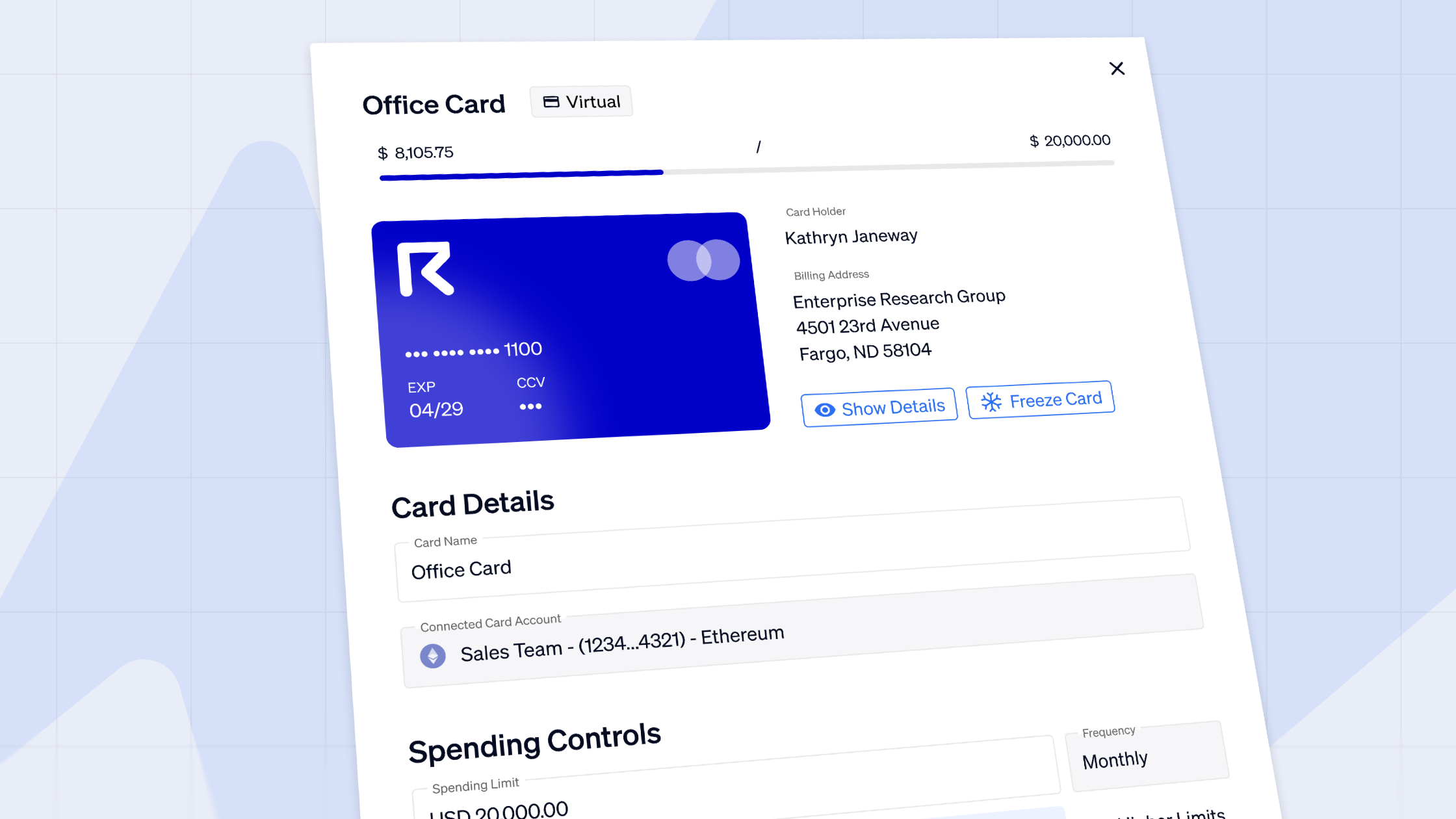Crypto Invoicing, Expenses & Accounting
Helping accounting professionals understand crypto assets and their treatment.

To help accounting professionals better understand and serve companies using cryptocurrencies, Australian social enterprise, Digital Playhouse and web3 startup, Request Finance organized a webinar.
The session explored how B2B invoice payments, and expense reimbursements in cryptocurrency can be managed from an operational, and accounting perspective.
Disclaimer: This article is to be considered as general advice only. The opinions contained herein should not be relied upon as providing specific advice for you or your clients. The information contained within this presentation is based upon our understanding of the relevant legislation, regulations and other materials as of May 2022.
Why More Companies Are Using Crypto
Critics of cryptocurrencies often say that these privately-issued forms of digital money lack real-world utility. But the numbers seem to tell a different story. Within just sixteen months of launching, over 1,700 companies have paid more than $200m in invoices using the enterprise crypto payments platform, Request Finance. Zooming out, the volume of cryptocurrency transactions globally grew to $15.8 trillion in 2021, up 567% from 2020.

Two compelling reasons can explain the growing enthusiasm of enterprises for crypto: operational efficiencies, and financial gain.
Faster, Cheaper Global Payments in Crypto
For starters, crypto payments can offer cheaper, faster, round-the-clock payments as compared to traditional banks. The reason lies in their design. Blockchains are global ledgers that are tamper-resistant, always accessible, and decentralized. That gives cryptocurrencies one crucial feature - they do not require an intermediary to process transactions. No bank branches, no card processors, no payment gateways.
The benefits of crypto payments are less evident for domestic money transfers. This is especially true if you live in a major city, in an advanced economy where accessibility of digital banking services is high. However, crypto payments are still incredibly attractive for countries where digital banking infrastructure is unavailable to large swathes of the population.
But when it comes to global money transfers, blockchain-based payments are nearly always superior - in nearly every measure of efficiency, cost, and speed - to the present system running on SWIFT interbank messages, card processors, and PDF invoices.
Thanks to the internet age, more businesses today are born global. Consider software companies that make apps, or perhaps even marketing and creative agencies. Such businesses are increasingly commonplace in an internet age. They serve customers from anywhere, and likely also hire team members and service providers globally. All of these businesses require a system of global payments that is fast, cheap, and accessible. That’s where crypto payments really shine.
The rise of stablecoins - cryptocurrencies whose value is pegged at a fixed rate to fiat currencies like the US dollar - has also accelerated the enterprise adoption of crypto payments. Data from Request Finance shows that USD-denominated stablecoins made up more than half (56%) of the crypto invoices paid by enterprises in April 2022.

The popularity of stablecoins for enterprise payments, as opposed to more volatile cryptocurrencies like Bitcoin or Ethereum can be explained with many of the same reasons why most people do business in fiat, rather than settling payments in shares of tech companies listed on the NASDAQ. Their stable prices make them ideal as a medium of exchange, and unit of account - two of the three defining uses of money.
Corporate Treasury Management with DeFi
The second driver of enterprise crypto adoption is financial gain. Having a portion of your company’s cash reserves in cryptocurrencies opens up access to decentralized finance,or DeFi platforms. These platforms are pieces of software that replicate the functions of traditional financial institutions like lending, borrowing, insurance, and derivatives.
Replicating the core functions of financial institutions using several hundred lines of code, translates to very attractive yields. With decades of declining, and even negative interest rates, DeFi is growing in popularity among companies looking for liquid instruments that can deliver higher returns on their corporate treasuries rather than bank deposit accounts, or money market funds.

Ready to Supercharge Your Crypto Accounting?
Stop wasting time, manually creating journal entries. Automate your accounting now, and enjoy error-free reporting
Learn how to scale your company's crypto & fiat financial operations
Your financial complexities are our specialties. Schedule your free consultation today and discover how Request Finance can transform your financial operations
Simplify crypto and fiat financial operations today
Rely on a secure, hassle-free process to manage your crypto invoices, expenses, payroll & accounting.
Problems with Enterprise Crypto Payments
Despite the operational and financial efficiencies that continue to draw more companies towards using cryptocurrencies, several major hurdles stand in the way.
For one, making crypto payments by copying and pasting wallet addresses from an Excel sheet is frightfully vulnerable to human error, and incredibly laborious to do at scale. Copying the wrong wallet address can lead to a team member's salary being paid to the marketing agency, or worse - to an address no one can access.
On top of that, keeping proper financial records of crypto transactions is challenging. Blockchain transaction data is devoid of important details like counterparties' identifying information, or purpose of the transaction. The pseudonymous nature of crypto wallet addresses, and the long alphanumeric strings of transaction hashes are ill-suited for financial reporting, calculating tax liabilities, or simply managerial accounting.

How Request Finance Simplifies Compliant Enterprise Crypto Payments
Request Finance is an enterprise crypto payments platform designed to meet the operational and compliance needs of enterprises. To eliminate the risks of administrative errors, Request Finance allows enterprises to add new suppliers, vendors, or employees and their billing information. Companies can also send their contractors an “Invoice Me” link, pre-filled with the companies’ own billing information.

The app also enables finance teams to automate their crypto payments. This includes features like the ability to set recurring invoices for salaries or monthly retainer fees, and also a batch payment feature which allows finance teams to send hundreds of invoices to different wallet addresses in just a few clicks. Billing customers in crypto is also made simple: with real-time payment confirmations, and traffic-light statuses showing which invoices have yet to be paid.

Growing regulatory pressures on the crypto industry have also helped enhance the appeal of Request Finance for enterprises using crypto. Large crypto-native companies use Request Finance as an easy way to document critical information about their crypto payments, as typically required by tax and law enforcement authorities.
What’s more, the crypto invoices in Request Finance can be exported to third-party accounting software such as Xero or Quickbooks. This eliminates the hassle of keeping records of PDF invoices in different formats, from different channels like email, or messaging platforms.
Future improvements to the app will see the introduction of more detailed invoicing formats for specific jurisdictions that reflect a breakdown of consumption taxes like VAT, or GST. Still to come is the ability to generate localized payslips. Currently, Request Finance only has a basic salaries and expenses feature.
Better still, Request Finance does not charge subscription fees, and is free to use for issuers. Payers are charged a processing fee equal to 0.1% of an invoice, capped at $2 per invoice.
To sign up for a free account, and receive $10 in REQ tokens, use the Digital Playhouse affiliate link here.
Accounting for Crypto and Stablecoins
While Request Finance enables companies to keep a proper paper trail of a company’s crypto payments, the accounting treatment of crypto remains a challenge. The lack of clear guidance by international accounting bodies, and the evolving regulatory landscape around crypto payments means that accounting professionals must interpret, and apply existing accounting standards to this novel asset class.

Except in the handful of countries that recognize cryptocurrencies as legal tender, few would consider cryptocurrencies as cash. But stablecoins may be treated differently than other more volatile crypto assets. For instance, some stablecoins are fiat-collateralized. As they can be redeemed at par value for fiat currencies, they may be accounted for under IFRS 9 - Financial Instruments.

Most non-stablecoin cryptocurrencies held on a company’s balance sheet will likely fall under either Inventory (IAS2), or Intangible Assets (IAS38), depending on how they are used by a business. For this reason, keeping separate crypto wallets for different purposes is essential. One wallet can be used to hold long-term investments in crypto assets for the purposes of realizing future gains, while a separate wallet should be used for other business payments.

Depending on how these digital assets are classified, their accounting treatment will differ. The most important thing accounting professionals dealing with crypto can do is to be consistent in their accounting treatment of crypto assets, as explained in the notes to the financial statements. This includes using consistent data sources for pricing, and cutoff timings in the valuation of more volatile crypto assets.
Community Resources for Crypto Accountants
Accounting professionals will have to become comfortable with cryptocurrencies in order to better serve the growing market of clients in the space. One of the best ways to keep learning is to join a community of accounting and finance professionals who are either already working in crypto, or eager to learn from others.
Accountants On-Chain
This group was set up by Electra Frost (Accountant FIPA, CTA) and Gordon Christian, co-founders of Digital Playhouse - an Australian social enterprise and registered charity. The group supports accounting professionals serving compliant crypto businesses in Australia with regulatory updates, accounting standards and tax reforms, new software tools, industry events, and professional education opportunities.
Join the Discord channel here: https://discord.gg/dSzcecDc
The Web3 CFO Club
Request Finance recently launched the web3cfo.club - a rapidly-growing, exclusive community of Finance & Operations leaders at prominent Web3 companies like Bankless, Consensys, Edge and Node, The Sandbox, Myna Accountants and more.
Know someone who fits the bill? Apply to join the club here 😎.
Podcasts & Seminars
Request Finance also hosts regular podcasts on The Accountant Quits, speaking with Web3 finance and operations leaders on emerging issues, and best practices at the intersection of crypto assets, finance, and accounting. We’ve also recently launched a partner program, aimed at allowing more accounting and audit firms to become channel partners.
Digital Playhouse organizes regular seminars and events aimed at accounting professionals in Australia and New Zealand. To stay updated on upcoming sessions, check out the events calendar here.
Crypto finance tips straight to your inbox
We'll email you once a week with quality resources to help you manage crypto and fiat operations
Trending articles
Get up to date with the most read publications of the month.
Our latest articles
News, guides, tips and more content to help you handle your crypto finances.











